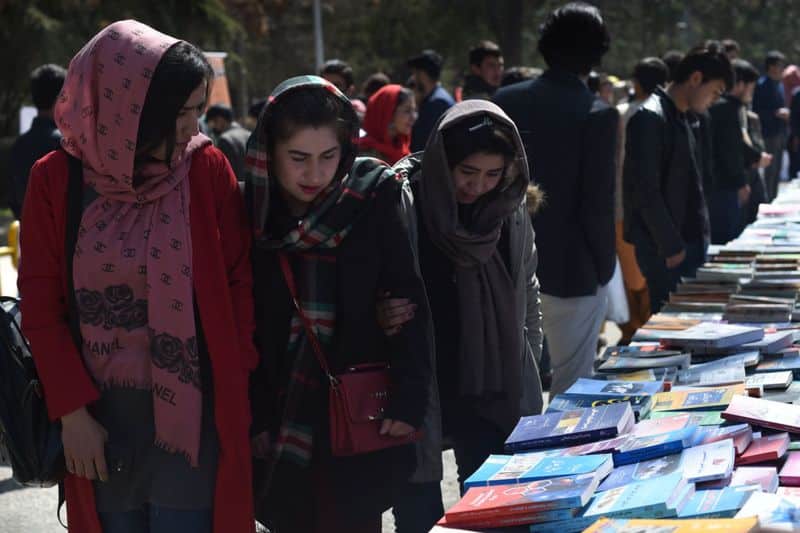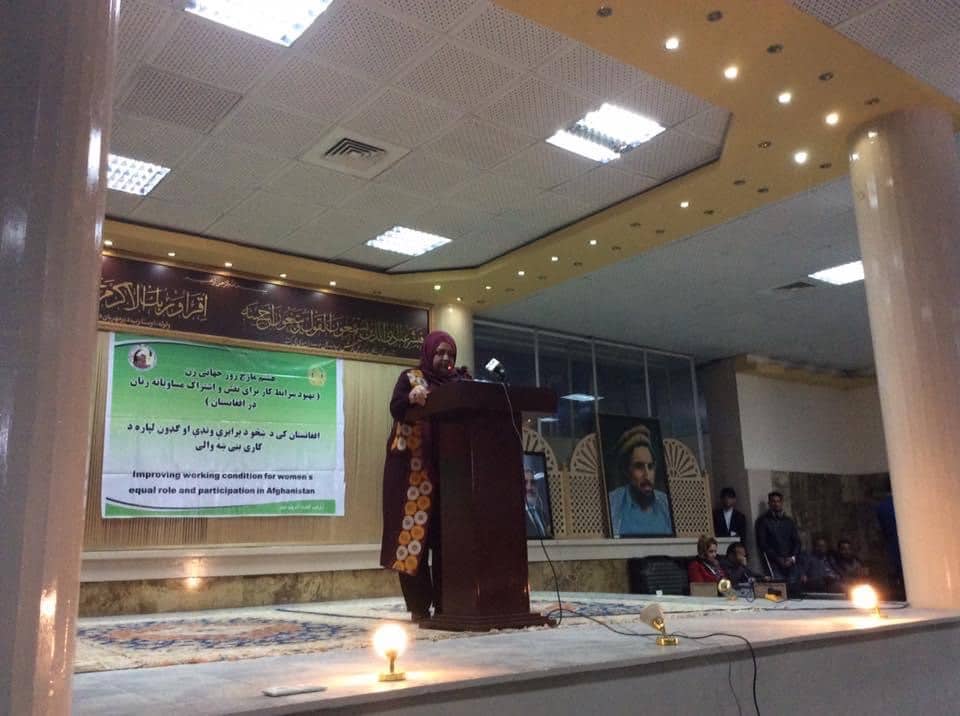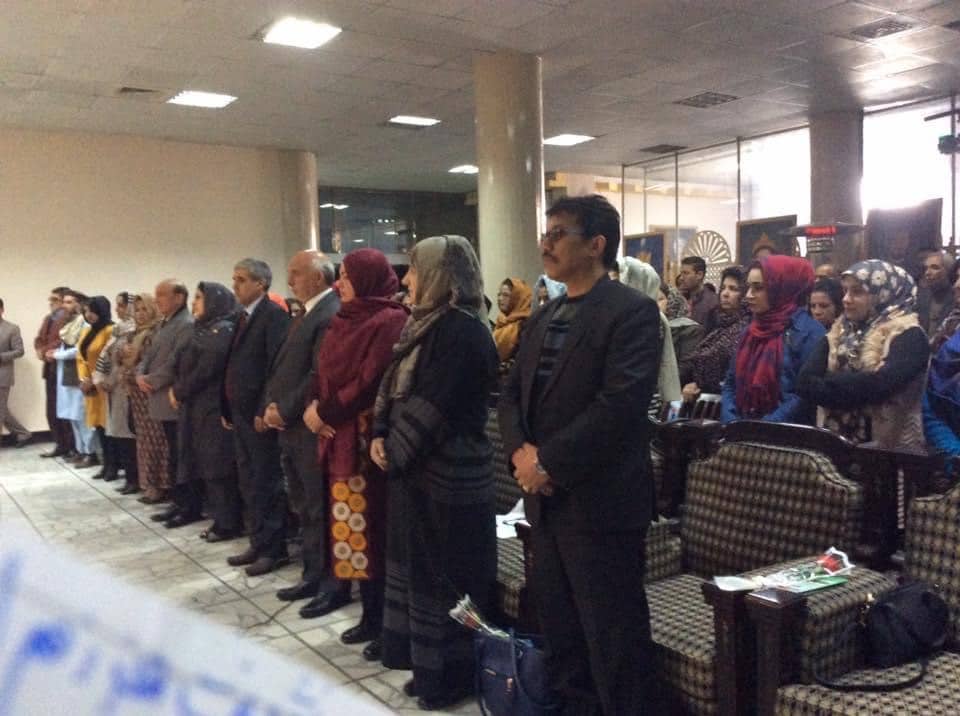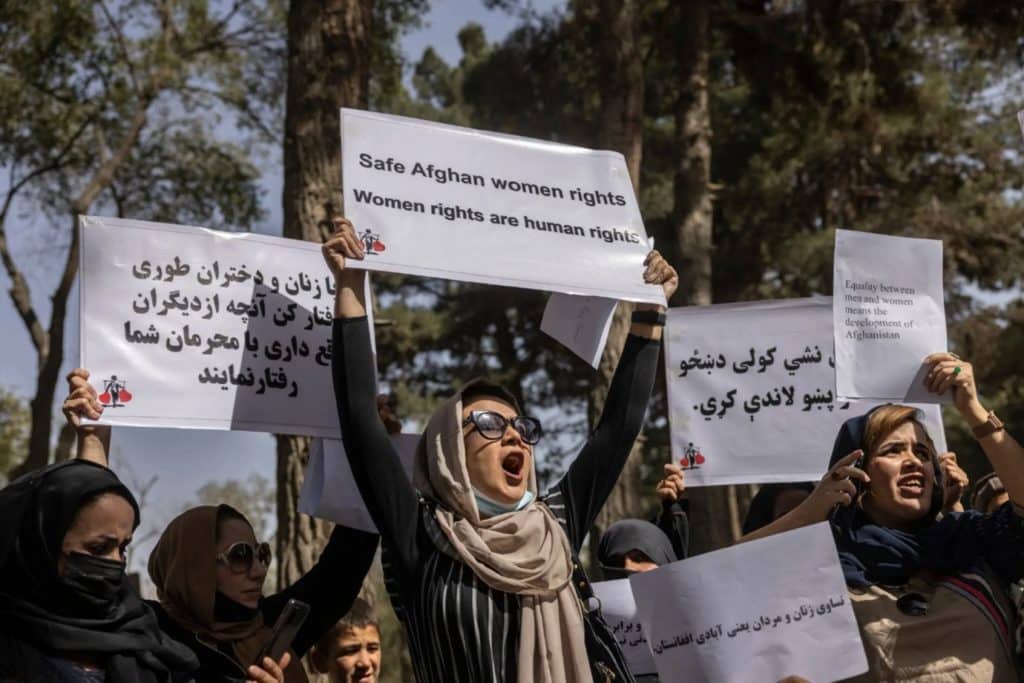In the almost 20 years between 2001 and 2021, there weren’t many differences between the western world and Afghanistan when it came to observing significant international days.
Like elsewhere in the world, days bringing attention to global themes brought on excitement and emotion. This was especially true for International Women’s Day.
This day was special for women across the Afghanistan – particularly for those of us living in the capital, Kabul.
Women were shown gestures of respect in many settings. We had access to free public transport and were given gifts or flowers by men we knew and even those we didn’t, on the street.
There were all sorts of discounts for women in food courts, retail stores and other entertainment venues, and a range of academic and professional events.

National and international organisations often celebrated this day by paying tribute to the sacrifice of Afghan women during war, and highlighting the rights achieved for Afghan women through the democratic society.
The focus was also on younger Afghan women, including how they were living their lives at the time and on the future that lay ahead of them.
Academic events were supporting these studies both theoretically and practically by raising awareness in the context of up-to-date global understanding about woman.

Most social and professional conversations about gender stereotypes and equity were rooted in feminism.
Afghan women were connected to women overseas through online platforms, or through travels, leaving a footprint in how Afghan women understood themselves and their surroundings.
They were dreaming of leveling themselves with their peers globally and were in the early stages of achieving this goal, even if there was more to be done.

Yes, geography matters. But there weren’t so many differences between women in Kabul and women in the neighbourhoods. The only difference was war and peace. War destroys everything built out of peace.
As Afghanistan was mostly in war except the period of 2001 – 2021, this time is referred to as the golden days of modern Afghanistan. Though there were still social issues and conflicts between the then Afghan government and insurgents in rural areas for power, it was far better than today.
Now, any human being on earth with any relation to Afghanistan is missing this period impatiently.
Afghanistan’s collapse under the hand of Taliban on August 15, 2021 destroyed everything which had been achieved over two decades.
This occasion shook Afghan women the most. It not only took their academic and professional achievements from them but threatened their every breathe. The Taliban first introduced frameworks to allow Afghan women and girls to continue their studies and work but within their Sharia Law. Later, they changed course and excluded Afghan women from social life, forcing many people to admit that things would be a lot like their first term – the 1996 era.
Although they had acknowledged their impact on Afghan women under their rule during the Afghan peace process in Doha, Qatar, the Taliban haven’t changed an inch.
Over the past two years, they implemented every strategy to repress Afghan women, from forcing them to wear the burqa and into marriages and to no education and employment. A woman can’t even walk alone in the street unless with her Mahram – partner or brother and father.
There were videos about companionship circulating on social media, which seemed to show families could no longer sit together in public spaces like parks and other green areas. In one video the father and partner of a woman were beaten to death while being asked to prove their family bonds at that moment to the Taliban.
Now, Afghan women of all ages are imprisoned at home completely with no access to open atmosphere. They don’t dare to raise their voice or argue.
If these women rise to the street, their voice will reach the international community, but the Taliban will fail them in every violent manner.
Women going to protest expect their death, knowing the Taliban shows no mercy for any reason.
Every single day since the Taliban’s takeover of Afghanistan is hell for Afghan women. The international community knows this well and is watching the Taliban’s every move.
However, there isn’t a single obvious counteraction by this community to stop the Taliban’s wrong doings against women in Afghanistan.
How can one celebrate International Women’s Day, when the lives of millions of Afghan women are in danger right now?


